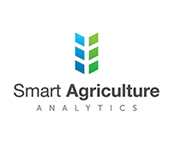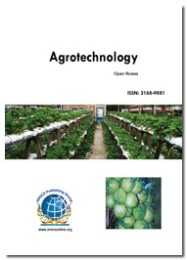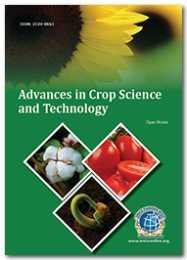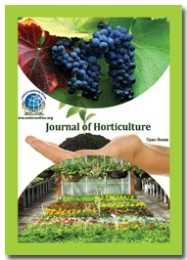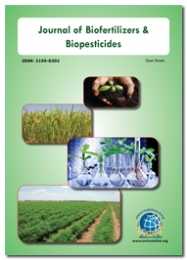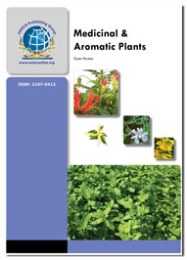Theme: Enhancing Modern and Sustainable Agricultural Practices
Renowned Speakers
Agri-2015
Track 1: Agronomy and Soil Sciences
International conference on agriculture will address the gathering with the leads that arise from basic science of agriculture i.e., agronomy. The agronomists generally deals with studies like irrigation, crop breeding, plant physiology, soil science, soil fertility, water management, weed and pest control. This meeting on agricultural research focuses on the nutritional values of crops like wheat, corn, etc. This part of topic in agriculture paved a way to fruit and vegetable production research with emphasis on ecological and environmental perspectives. This area of science is closely related to the sustainable agriculture and organic farming for the development of alternative cropping systems.
Track 2: Horticulture, Floriculture & Forestry
Horticulture comprises the cultivation of fruits, nuts, vegetables, medicinal plants and herbs, flowers and seeds and non-food crops like ornamental plants. It is the branch of agriculture dealing with the plant conservation, arboriculture, landscape and garden design. Horticulture involves several studies which are grouped into two categories: edibles and ornamentals. The areas of study in Horticulture are: Arboriculture; Postharvest Physiology; Floriculture; Viticulture; Olericulture; Turf Management; Oenology etc. There are several organizations across the globe which encourages the research and promote horticulture techniques. Few are: Institute of Horticulture of Great Britain; International Society of Horticultural Science, the American Society of Horticultural Science; the Australian Society of Horticultural Science, the New Zealand Horticultural Institute; the Global Horticultural Initiative.
Track 3: Agricultural Extension
Agricultural Extension encompasses a wide range of communication activities for rural people like agriculture, agricultural marketing, ICT usage. The agencies working for the agricultural extension from the developing countries receives support from the International Development organizations like World Bank, Food and Agricultural Organization (FAO) etc.
Track 4: Plant Biochemistry and Physiology
Scientists have been able to identify several plant genes that are involved with stress tolerance. Some of these genes code for antioxidants, enzymes that modify lipids in the cell membrane, stress-response transcription factors, proteins that maintain ion homeostasis, heat shock proteins, or enzymes that synthesis important stress-response compounds. Drought tolerance is an extremely important agricultural trait. One way of engineering drought tolerance is by taking genes from plants that are naturally drought tolerant and introducing them to crops. Irrigation has enabled the transformation of arid regions into some of the world's most productive agricultural areas. Excess salinity, however, is becoming a major problem for agriculture in dry parts of the world. In several cases, scientists have used biotechnology to develop plants with enhanced tolerance to salty conditions. Reactive oxygen intermediates (ROI) play an important role in many signaling events related to biotic or abiotic stresses, programmed cell death, and hormonal action.
Track 5: Crop Breeding and Genetics
The mission of organizing the crop breeding conferences by OMICS International is to conduct research to solve agricultural and environmental problems of regional and national interest. The session will focus on development, preserve and distribution of germplasm with improved biological and agricultural characteristics; Development of new and improved breeding methods, to enhance agricultural production and efficiency; Development of new and improved management practices that increase yields, minimize production and utilization losses, and enhance environmental quality and Development of pest management strategies. Research is conducted on warm-season forage and turf grasses, maize, peanut, pearl millet and sorghum. Scientists predict that by creating "road maps" of all the genes in various plants and animals, they will be able to more quickly locate desirable traits and move those traits into other crops.
Track 6: Crop Protection and Management
Crop protection events plays a vital role in agriculture. Integrated Pest Management (IPM) is an effective and environmentally sensitive approach to pest management that relies on a combination of common-sense practices. IPM programs use current, comprehensive information on the life cycles of pests and their interaction with the environment. This information, in combination with available pest control methods, is used to manage pest damage by the most economical means, and with the least possible hazard to people, property, and the environment. The IPM approach can be applied to both agricultural and non-agricultural settings, such as the home, garden, and workplace. IPM takes advantage of all appropriate pest management options including, but not limited to, the judicious use of pesticides. In contrast, organic food production applies many of the same concepts as IPM but limits the use of pesticides to those that are produced from natural sources, as opposed to synthetic chemicals. IPM is not a single pest control method but, rather, a series of pest management evaluations, decisions and controls.
Track 7: Spices, Herbs and Medicinal Plants
The scope of herbal medicine is sometimes extended to include fungal and bee products, as well as minerals, shells and certain animal parts. Plants have the ability to synthesize a wide variety of chemical compounds that are used to perform important biological functions, and to defend against attack from predators such as insects, fungi and herbivorous mammals. At least 12,000 such compounds have been isolated so far; a number estimated to be less than 10% of the total. The use of plants as medicines predates written human history. In 2001, researchers identified 122 compounds used in modern medicine which were derived from "ethnomedical" plant sources; 80% of these have had an ethnomedical use identical or related to the current use of the active elements of the plant. Many of the pharmaceuticals currently available to physicians have a long history of use as herbal remedies, including aspirin, digitalis, quinine, and opium. The World Health Organization (WHO) estimates that 80 percent of the population of some Asian and African countries presently uses herbal medicine for some aspect of primary health care. Studies in the United States and Europe have shown that their use is less common in clinical settings, but has become increasingly more in recent years as scientific evidence about the effectiveness of herbal medicine has become more widely available.
Track 8: Tissue Culture and Plant Biotechnology
International conference on agricultural and biological sciences emphasises on high quality seed technologies leading to excellent seedling performance in the field. It is the ultimative basis of successful companies that breed crop plants for seed production. Modern approaches to improve seed quality therefore combine classical genetics, plant molecular biology and a variety of seed technologies. Molecular Pharming represents an unprecedented opportunity to manufacture affordable modern medicines and make these available at a global scale. Plant molecular farming is currently being pursued to address either the increased demand for proteins that cannot be produced in sufficient quantities in either microbial or animal cell cultures, or as a means to produce proteins that cannot be expressed in microbial or animal cell cultures.
Track 9: Agricultural Engineering and Technology
In recent years, most of the countries are practicing these technologies to develop the quality as well as the quantity of agricultural products considering the emerging demand for food scarcity rising day by day. The most demanding field and area of approach in the field of agri-technology are: Equipment, machinery and structure designing; Systems for controlling the climatic conditions (e.g., robotics and automated systems for precision farming). Importance of Post-harvest technology lies in the fact that it has capability to meet food requirement of growing population by eliminating avoidable losses making more nutritive food items from low grade raw commodity by proper processing and fortification, diverting portion of food material being fed to cattle by way of processing and fortifying low grade food and organic wastes and by-products into nutritive animal feed. The purpose of post -harvest management meetings is to maintain or enhance quality of the products and make it readily marketable. Prime example of post harvest processing of agricultural products is rice. Paddy is harvested and processed into rice.
Track 10: Agricultural Risk Management
Risk is an important aspect of the Agricultural business. The uncertainties of climatic conditions, yields, prices, government policies, global market values, and other allied factors can motivate wide fluctuation in farm earnings. Risk management is associated with choosing among alternatives that reduce the financial effects of such uncertainties. Risk management in agriculture is now an essential tool for farmers to anticipate, avoid and react to shocks. An efficient risk management system for agriculture will preserve the standard of living of those who depend on farming, strengthen the viability. Agricultural Risk Management policies should focus on catastrophic risks that are rare but cause significant damage to many farmers at the same time. Contingency plans should define in advance the procedures, responsibilities and limits of the policy response.
Track 11: Sustainable Practices for Agriculture
Sustainable agriculture conference is the production of food, fiber, or other plant or animal products using farming techniques that protect the environment, public health, human communities, and animal welfare. Sustainable agriculture is using farming practices considering the ecological cycles. It is also sensitive towards the microorganisms and their equations with the environment at large. In simpler terms, sustainable farming is farming ecologically by promoting methods and practices that are economically viable, environmentally sound and protect public health. Bioenergy refers to products of biomass that have been converted into liquid, solid or gas form, depending on the raw material base and the technology employed, for energy generation. Biomass encompasses a wide spectrum of plant materials ranging from agricultural, forestry and municipal wastes to crops grown specifically to make biofuels, such as bioethanol and biodiesel.
Track 12: Agricultural Economics and Agribusiness
In 20th century, the scope of agricultural economics has expanded much broader. Agribusiness to the range of activities and disciplines encompassed by modern food production. The UN's Food and Agriculture Organization (FAO) operates a section devoted to Agribusiness Development which seeks to promote food industry growth in developing nations. To promote more development of food economies, many government agencies support the research and publication of economic studies and reports exploring agribusiness and agribusiness practices. Some of these studies are on foods produced for export and are derived from agencies focused on food exports. These agencies include the Foreign Agricultural Service (FAS) of the U.S. Department of Agriculture, Agriculture and Agri-Food Canada (AAFC), Austrade, and New Zealand Trade and Enterprise (NZTE).
Track 13: Modeling tools in Agriculture DSS
A Decision Support System (DSS) to support sustainable development planning processes in the agricultural sector has been developed. The model is based on vulnerability maps and facilitates and optimizes the decision-making process relating to the problems of land use, water management and environmental protection Decision Support Systems (DSS) are defined as computerized systems, which include models and databases and they are used in decision-making. They are "tools" that help farmers and everyone who makes decisions, in the procedure of decision making and in choosing the best (economic, social or environmental) alternative solution. Several scientific disciplines support the development of DSS's and constitute the necessary background for their effective planning. The Science of Informatics has contributed in the planning and the application of Decision Support Systems with the vast supply of tools, materials and software. The disciplines of Operational Research and Management and Business Administration provide the theoretical frame for the analysis of various decisions.
OMICS International with immense pleasure invites all the contributors across the globe to the 4th International Conference on Agriculture & Horticulture (Agri-2015) during July 13-15, 2015 at Beijing, China.
OMICS International organizes 1000+ Scientific events inclusive of 300+ Conferences, 500+ Workshops and 200+ Symposiums on various topics of Science & Technology across the globe with support from 1000 more scientific societies and Publishes 500+ Open Access journals which contains over 50000 eminent personalities, reputed scientists as editorial board members.
Join us at international agricultural conference 2015 to address the “Enhancing Modern and Sustainable Agricultural Practices”. This agricultural event has been designed to address Agriculture, Biotechnology and Pharmacology Industries and related scientific communities in order to provide them with all levels of awareness, expertise and proactive solutions to create global impact in this field. Moreover, it will help industrialists to incorporate sustainability into every aspect of Agricultural Industries business model. The agriculture conference will influence industries to maximize their yield and profit through the application of strategic techniques. Additionally, it will reveal the best techniques to produce agricultural commodities health and hygiene.
Agriculture is a vital industry in China, ranks 1st in the farming output. It produces food for 20% of the world population. The Agriculture sector has witnessed considerable change in recent years, and this has had a significant impact on the wider Agri business sector. According to the International Labour Organization, over one billion people are employed in the global agricultural sector. Agriculture, itlsef constitutes 70% of global employement of women in any industry.
For more details, please visit: http://www.conferenceseries.com/agriculture-horticulture-forestry.php
We look forward to an exciting scientific event in the beautiful city of Beijing, China.
Conference Highlights
- Agronomy and Soil Sciences
- Horticulture, Floriculture & Forestry
- Agricultural Extension
- Plant Biochemistry and Physiology
- Crop Breeding and Genetics
- Crop Protection and Management
- Spices, Herbs and Medicinal Plants
- Tissue Culture and Plant Biotechnology
- Agricultural Engineering and Technology
- Agricultural Risk Management
- Sustainable Practices for Agriculture
- Agricultural Economics and Agribusiness
- Modeling tools in Agriculture DSS
To share your views and research, please click here to register for the Conference.
To Collaborate Scientific Professionals around the World
| Conference Date | July 13-15, 2015 | ||
| Sponsors & Exhibitors |
|
||
| Speaker Opportunity Closed | Day 1 | Day 2 | Day 3 |
| Poster Opportunity Closed | Click Here to View | ||
Useful Links
Special Issues
All accepted abstracts will be published in respective Our International Journals.
Abstracts will be provided with Digital Object Identifier by












